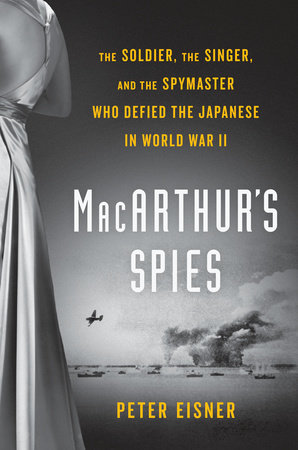The road to hell is paved with good intentions.
That's the tag line that best fits this particular narrative.
Cassie Hugo is as structured as could be, a control freak whose military husband is deployed to Jordan. So aware of the dangers of radical Islam, she sees a Bin Laden in every Arabic face and threats around every corner.
She's annoying and unlikeable and if author Siobhan Fallon says it once she says it more than enough times. Cassie, being infertile, has an attitude about babies. I got it early on. No need to repeat.
Due to circumstances where you can't pick your friends because there's but a small pool of American embassy workers on hand, she tries to cozy up to Margaret Hugo.
Margaret is a stereotypical California girl, head full of clouds. You can get away with using stereotypes when you've won a few writing awards. But all those awards don't make for a likeable character either.
Cassie keeps her distance while Margaret rushes head-long into making nice with the natives. Being empty-headed, she's blissfully unaware of cultural differences and acts the role of ugly American, doing things her way in the assumption that she can bring people together through kindness. Kindness American style, which does not translate into Jordanian life. Hence, the confusion of languages.
The novel is told in first person by both Cassie and Margaret, so be on your toes as you read. Margaret's side of the story is revealed through her secret diary that Cassie discovers after Margaret goes missing, leaving her toddler in Cassie's care. Oddly enough, Margaret's journal is written just like a novel, with dialogue and everything.
As for Cassie, her narrative covers the time period from when Margaret dumps said toddler and she finds out what happened to Margaret, the chapters moving slowly through time as backstory is revealed and Cassie discovers some insight into herself. To use the military term, Margaret's good intentions result in a massive clusterfuck of trouble that descends on those she tried to help. The actions she takes drive the narrative and work to build the tension, so that you can almost forget how much you dislike all the characters and read on to see how the dust settles.
The story builds to a strong finish, with plenty of strong emotional elements. Some will love THE CONFUSION OF LANGUAGES and some will not get far once Cassie starts whinging about sloppy babies. Self-edit, skim, and get yourself to the meat of the story.
Review copy provided by Penguin Random House, thanks a million.
Wednesday, May 24, 2017
Wednesday, May 10, 2017
Before We Were Yours: A Book Review
Like THE ORPHAN TRAIN, author Lisa Wingate builds a novel from the bones of history and puts together a very compelling book.
BEFORE WE WERE YOURS presents an adoption scandal that blew up in the 1950's and juxtaposes it with a modern young lady under pressure to marry well, in keeping with her social position. Avery would much rather find out why the strange old lady at the nursing home was so obsessed with a bracelet that Avery was given by her grandmother than make wedding plans with her fiance.
Ms. Wingate creates a mystery for Avery, who sets out to uncover a family secret that might have remained hidden due to her grandmother's senility. Interwoven within this narrative is the tale told by Rill Foss, who is early shown to be the same old woman Avery knows as May.
Readers are given enough insight early on to understand much of the connection between May and Avery's grandmother, and the pleasure in reading the novel comes from following along as Avery discovers those same facts.
There is a great deal of heartstring tugging as Rill struggles to survive the ordeal of being kidnapped by the Tennessee Children's Home baby snatchers. Like the Catholic Church running the mother and baby homes in Ireland, there was a booming market for adoptable children during the 1930's through the 1950's. The same theme runs through BEFORE WE WERE YOURS, as Rill struggles to keep her siblings with her, only to watch them torn away in adoption.
We have some sexual tension, of course, between Avery and the grandson of the man who made it his life's work to find those lost siblings. Additional friction exists between the young lady and her mother, a dispute over proper place and future plans in a powerful, wealthy, politically prominent family. The fact that Avery's father is a Senator lends an added degree of tension because the possibility of scandal is the sort of thing that would put a quick halt to probing. Will there be such scandal, will it bring down the Senator, etc. etc., lends a little interest to Avery's less compelling narrative.
The story is well told and thoroughly enjoyable, right down to the happy ending that isn't overly saccharine.Things don't all work out in the end, like in real life.
Thanks to Penguin Random House for the review copy used here.
BEFORE WE WERE YOURS presents an adoption scandal that blew up in the 1950's and juxtaposes it with a modern young lady under pressure to marry well, in keeping with her social position. Avery would much rather find out why the strange old lady at the nursing home was so obsessed with a bracelet that Avery was given by her grandmother than make wedding plans with her fiance.
Ms. Wingate creates a mystery for Avery, who sets out to uncover a family secret that might have remained hidden due to her grandmother's senility. Interwoven within this narrative is the tale told by Rill Foss, who is early shown to be the same old woman Avery knows as May.
Readers are given enough insight early on to understand much of the connection between May and Avery's grandmother, and the pleasure in reading the novel comes from following along as Avery discovers those same facts.
There is a great deal of heartstring tugging as Rill struggles to survive the ordeal of being kidnapped by the Tennessee Children's Home baby snatchers. Like the Catholic Church running the mother and baby homes in Ireland, there was a booming market for adoptable children during the 1930's through the 1950's. The same theme runs through BEFORE WE WERE YOURS, as Rill struggles to keep her siblings with her, only to watch them torn away in adoption.
We have some sexual tension, of course, between Avery and the grandson of the man who made it his life's work to find those lost siblings. Additional friction exists between the young lady and her mother, a dispute over proper place and future plans in a powerful, wealthy, politically prominent family. The fact that Avery's father is a Senator lends an added degree of tension because the possibility of scandal is the sort of thing that would put a quick halt to probing. Will there be such scandal, will it bring down the Senator, etc. etc., lends a little interest to Avery's less compelling narrative.
The story is well told and thoroughly enjoyable, right down to the happy ending that isn't overly saccharine.Things don't all work out in the end, like in real life.
Thanks to Penguin Random House for the review copy used here.
Tuesday, May 02, 2017
MacArthur's Spies: A Book Review
The smoky club, the sultry singer, the pretty hostesses flirting with the enemy---it's the makings of a noir thriller, but in MACARTHUR'S SPIES, it's not a film.
Peter Eisner brings to life a small group of determined patriots whose exploits in the Philippines during the Second World War are remarkable. The group includes ex-pats and Filipinos, all of them risking their lives for the sake of undermining the Japanese occupation.
To read of ordinary people placing themselves into great danger is a thrill, and the author does an excellent job of bringing forward the sort of tension that these ordinary people lived with every day, with the threat of death a daily experience. The cast of characters if certainly interesting, none more so than Claire Phillips. As a woman and an American trying to survive in enemy territory, she stepped up and acted with bold determination, using her ability to shade her past to create a new person who found ways to support the rebels and the American POWs.
The complexity of the operation makes for a complex read, and it is sometimes difficult to keep all the names straight, but the underlying current of fear is enough to propel a reader forward. This is a tale of resilience to be sure, with a touch of laughing in the face of death, and it all makes for a very compelling read.
Anyone who enjoys a good spy novel will thoroughly enjoy this journey into the inner workings of a large-scale plot to pave the way for liberation. As usual, I'm thanking Penguin Random House for the advance review copy.
Peter Eisner brings to life a small group of determined patriots whose exploits in the Philippines during the Second World War are remarkable. The group includes ex-pats and Filipinos, all of them risking their lives for the sake of undermining the Japanese occupation.
To read of ordinary people placing themselves into great danger is a thrill, and the author does an excellent job of bringing forward the sort of tension that these ordinary people lived with every day, with the threat of death a daily experience. The cast of characters if certainly interesting, none more so than Claire Phillips. As a woman and an American trying to survive in enemy territory, she stepped up and acted with bold determination, using her ability to shade her past to create a new person who found ways to support the rebels and the American POWs.
The complexity of the operation makes for a complex read, and it is sometimes difficult to keep all the names straight, but the underlying current of fear is enough to propel a reader forward. This is a tale of resilience to be sure, with a touch of laughing in the face of death, and it all makes for a very compelling read.
Anyone who enjoys a good spy novel will thoroughly enjoy this journey into the inner workings of a large-scale plot to pave the way for liberation. As usual, I'm thanking Penguin Random House for the advance review copy.
Subscribe to:
Comments (Atom)


